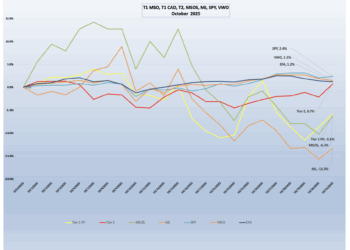A Georgia resident, with the help of an attorney who was involved in other lawsuits concerning alleged lab testing fraud, is suing Cookies, Stiiizy and an assortment of vape shops and testing labs for allegedly enabling a scheme to sell federally illegal cannabis products as legal hemp-derived intoxicants.
The lawsuit identifies the plaintiff as Hannah Ledbetter as a resident of Georgia. There’s no more information about her in the complaint. Her attorney, Luther Sutter, is an Arkansas-based lawyer who previously represented plaintiffs in his home state that twice sued testing company Steep Hill over alleged THC inflation in its testing lab in Arkansas.
The most recent lawsuit from Arkansas was filed last February before it was removed from state to federal court. Sutter was able to get the case remanded back to state court, but on Feb. 16 he filed a motion to dismiss the case with prejudice because both sides reached a settlement with undisclosed terms.
Ledbetter purchased five vape products in and around Atlanta under the assumption they were federally legal hemp-derived delta-8 THC. She then took the products to an unidentified testing lab and found that they contained more than the legal amount of THC for a hemp-derived product.
The 2018 U.S. Farm Act essentially legalized hemp-derived products as long as they contained no more than 0.3% of delta-9 THC by dry weight. Whether or not this includes other hemp-derived THC derivatives remains a legal gray area. This has allowed a flourishing industry of hemp-derived cannabinoid (HDC) products that can be sold across state lines, especially in markets where adult-use cannabis is not legal.
Georgia allows only low-THC oil, up to 5% THC, for certain medical conditions.
“To reassure herself that the product was legal, Plaintiff had the marijuana tested. The tests revealed that the Manufacturer and Retailer Defendants routinely sell illegal D8 vape pens,” said the 49-page complaint filed on Feb. 6 in the Northern U.S. District Court of Georgia.
This lawsuit charges the companies with RICO violations and includes at least two notable national cannabis brands. In total, the lawsuit includes four producers of vape products, three retailers and three testing labs.
Cloud 9 Online Smoke & Vape is a chain of vape shops with over 50 locations in Georgia and Florida. Xhale City, another chain of vape shops has over 50 locations in Georgia, while Element Vape is an online retailer that ships to multiple states, including Georgia.
Cookies, Stiiizy, Savage Enterprises and L&K Distribution are all named as defendant producers of the vapes.
The lawsuit also alleges criminal action from a trio of testing labs: Columbia Laboratories in Oregon, which supplied the Cookies certificates of analysis (COA); Encore Labs in California, which provided COAs to Stiiizy; and Pharmlabs, also in California, which provided COAs to Savage Enterprises and L&K Distribution.
Ledbetter alleges that the manufacturers of the products deliberately sought out testing labs in Oregon and California until they found ones that would overlook contaminants and measure less than 0.3% THC so that the product still counted as legal hemp. In other words, Ledbetter claims they lab-shopped.
Ledbetter is also seeking class action status for herself and anyone else who may have purchased these products. In order to establish that status, Ledbetter’s attorney is planning to use discovery to access the retail defendants’ customer databases.
“Defendant(s) maintains a database that identifies persons who purchase D8 products and the type of D8 products purchased from the corporate Defendants through credit card receipts and customer loyalty clubs,” said the complaint. “There are thousands of class members.”
Ledbetter is seeking damages based on the cost of the vapes she bought, because their illicit status renders them essentially worthless. The lawsuit is assuming those damages could exceed $50 million based on how many supposedly illicit vapes were sold.
MSOs target growth through HDC products
Well-known brands including Cookies, Stiiizy, Curaleaf and Runtz, the latter two of which are not involved in the case, have turned to hemp-derived delta-8 products to both build their brand and allow for mail delivery, reaching states that may not already have a legal cannabis market.
Stiiizy’s own website notes that “embracing the world of hemp opens up a multitude of possibilities,” in terms of product variety. Though the company does not explicitly list this as a goal, being able to sell in larger markets likely helps establish these brands.
Their efforts are leading to feuds within both the legal cannabis and hemp industries.
“They are not limited on their marketing, so they’re able to take their brand, put CBD behind it or delta-8 or delta-9, and then market it out on the regular channels that we can’t because we’re THC,” explained Laurie Holcomb, CEO of Gold Flora, a California-based cannabis company.
Holcomb was speaking during the 2023 State of the Cannabis Industry Conference in Waltham, Mass.












